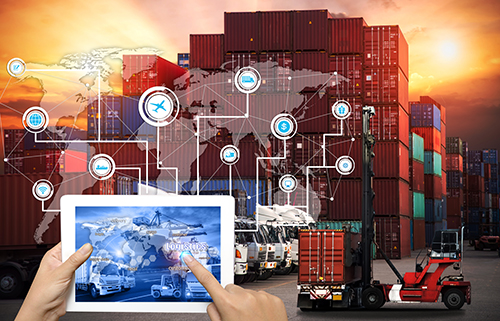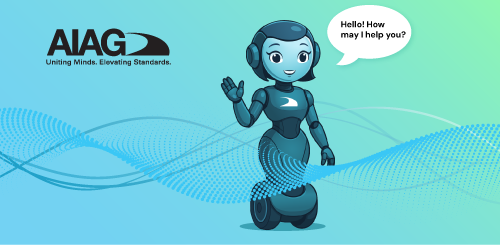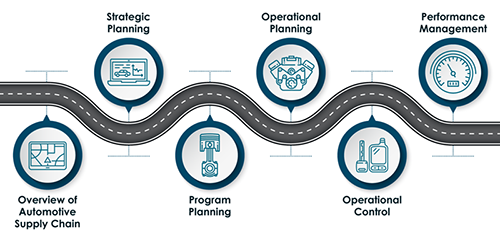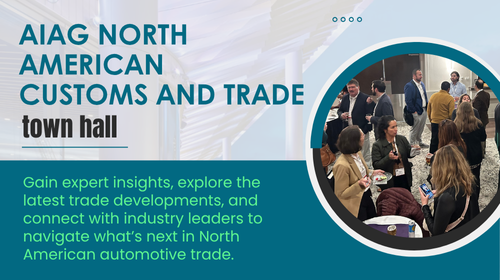This month marked the successful conclusion of the Automotive Trade Compliance Masterclass — a first-of-its-kind program brought by AIAG and TCEPro to advance trade compliance expertise across the automotive industry.
Read MoreAIAG and TCEPro Celebrate Successful Completion of Industry-First Automotive Trade Compliance Masterclass
As the automotive industry accelerates toward electrification, the need for safe, standardized practices in managing lithium-ion batteries has never been greater.
Read MoreAl Dewar serves on both the Canadian Society of Customs Brokers and the Canadian Association of Importers and Exporters, which puts him in a unique position to understand multiple perspectives of the industry. Dewar is executive vice president of GHY International, one of North America’s longest-serving customs brokers. His talk at the AIAG North American Customs & Trade Town Hall on November 6, 2025, at Elevate in Detroit, will provide a Canadian trade update focused primarily on CARM (Canada Border Services Agency Assessment and Revenue Management), tariffs, and what’s ahead.
Read More
The 2025 AIAG North American Customs and Trade Town Hall may conclude on November 6, but the learning doesn’t stop there. The following day, November 7, AIAG will host two focused training sessions designed to help customs and trade professionals strengthen compliance, improve accuracy, and stay ahead of evolving global trade requirements.
Read More
Meet AVA: Your Supply Chain Support Partner
Supply chain challenges are evolving fast—from logistics and materials management to customs, trade, and digital transformation. AVA, AIAG’s new virtual assistant, is here to help you keep pace. Instantly access reliable answers on everything from inventory management and MMOG/LE to EV battery handling and compliance documentation.
Read MoreNavigating the latest tariff policies can mean the difference between lost revenue and new opportunity. Join AIAG on October 15, 2025, from 1:30–2:30 PM EST for our free webinar, From Trade Policy to Practice: A Best-Practice Approach to Today’s Tariff Turbulence.
Read MoreIn today’s dynamic automotive environment, understanding the fundamentals of supply chain management is more important than ever. Whether you’re new to the field or looking to expand your knowledge, AIAG’s Essentials of Supply Chain Management online training series offers a comprehensive foundation in key concepts, processes, and best practices — all available anytime, anywhere.
Read MoreIn the latest episode of our sponsored collaboration with the Auto Supply Chain Prophets podcast, Kate Vitasek, global authority on collaborative business models, explains how the Vested framework is transforming automotive negotiations.
International trade is shaped by more than regulations — it’s driven by global economics, political shifts, and strategic maneuvering between nations.
Read More
Former CBP Leader Shawn Beddows: ‘At the End of the Day, Trade Is Supposed to Have a Voice’
In the upcoming AIAG North America Customs & Trade Town Hall on November 6, 2025 (at Elevate in Detroit), 22-year U.S. Customs and Border Protection (CBP) veteran Shawn Beddows will lead an in-depth panel discussion on how cross-border logistics strategies intersect with key supply chain security programs like Mexico’s Operador Económico Autorizado (OEA), Partners in Protection (PIP), and the U.S. Customs Trade Partnership Against Terrorism (CTPAT). Two CBP expert panelists, an OEM, and Beddows, who is currently vice president, global services for CT Strategies, will offer practical insights for companies operating across the U.S.-Mexico border with a focus on how to align operational practices with binational security and compliance standards.
Read More











